- Jomar Life Research is evolving into Millennium Science
- Introducing the Agilent Novocyte Flow Cytometer Family
- Agilent xCELLigence Real-Time Cell Analysis (RTCA)
- RTCA & Cancer Immunotherapies
- Millennium Science now distribute Agilent ACEA products
- PacBio launch TWO new sequencers
- Millennium Science appoints top biomedical researchers to Scientific Advisory Board
- Tech tips – your guide to Time-Resolved Fluorescence
- 5 Tips to get the most out of your plate washer
Jomar Life Research is evolving into Millennium Science
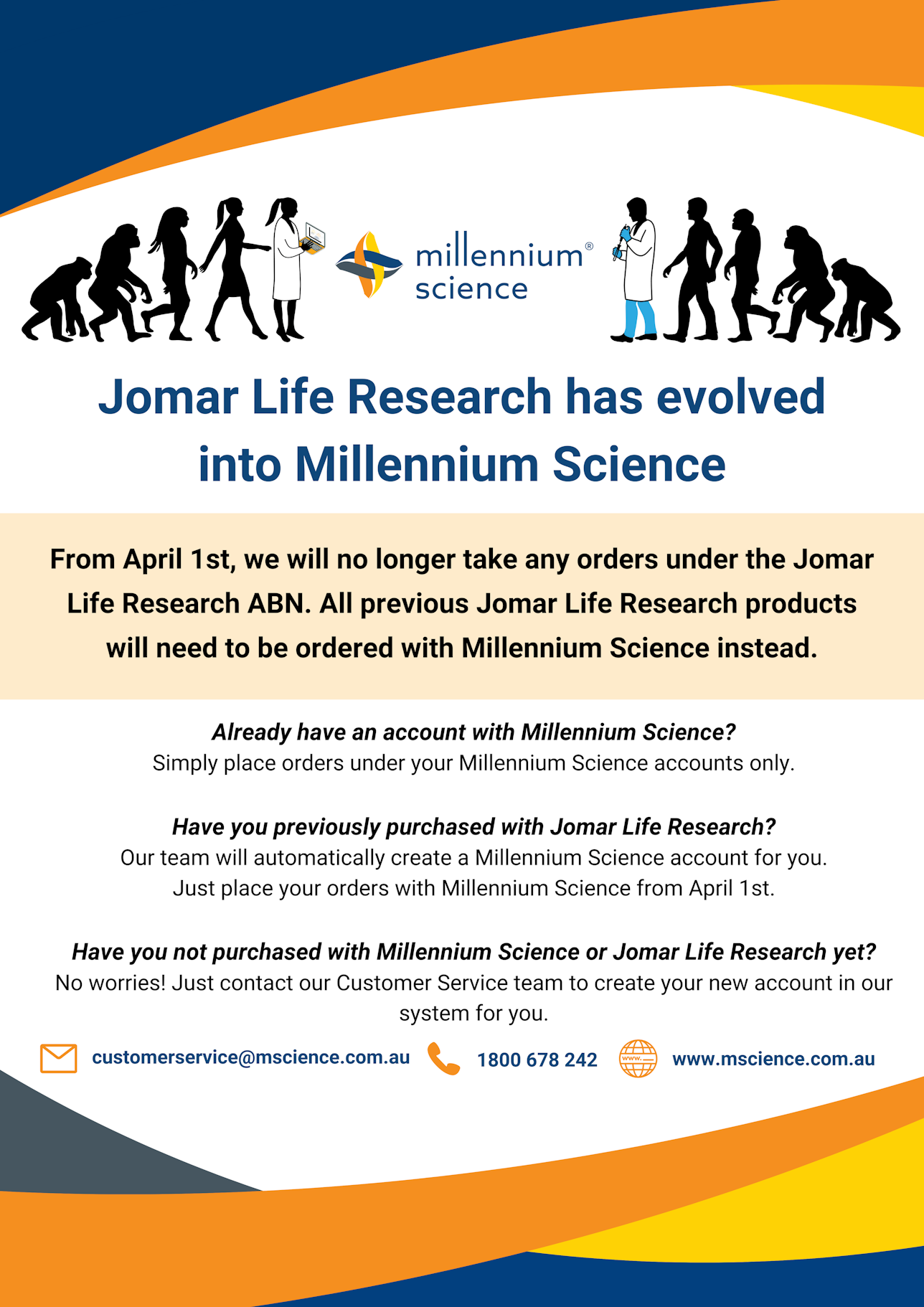
Introducing the Agilent Novocyte Flow Cytometer Family - Now distributed by Millennium Science

The Sensitivity you Demand
Silicon photomultiplier ( SiPM ): The Ultimate photodetector
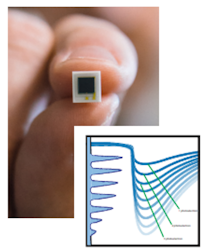 SiPMs are solid-state, semiconductor devices. Consisting of a compact array of avalanche photodiodes operating in unison, SiPM is a detector with photon counting capability. An innovative optical design in the NovoCyte flow cytometers incorporates up to 30 independent SiPM for collecting and processing signals for each of its fluorescence channels.
SiPMs are solid-state, semiconductor devices. Consisting of a compact array of avalanche photodiodes operating in unison, SiPM is a detector with photon counting capability. An innovative optical design in the NovoCyte flow cytometers incorporates up to 30 independent SiPM for collecting and processing signals for each of its fluorescence channels.
SiPM's strengths:
- Superior photon detection sensitivity
- High gain and quantum efficiency
- Instantaneous warm up and fast response
- Robust and long life-span
- High durability
- Wide, 7.2-log dynamic range
Agilent NovoCyte is a high-performance budget-friendly benchtop range of flow cytometers designed for all levels of users and all types of laboratories.
NovoCyte Benchtop Flow Cytometer:
• 1-3 lases (405, 488, 561, 640)
• Up to 15 fluorescence channels
NovoCyte Advanteon:
• 1-3 lasers (405, 488, 561, 640)
• Up to 15 fluorescence channels
NovoCyte Quanteon:
• 4 lasers (405, 488, 561, 640)
• Up to 25 fluorescent channels
NovoCyte Penteon:
• 5 lasers (349, 405, 488, 561, 640)
• 30 fluorescent channels
Agilent xCELLigence Real-Time Cell Analysis Instruments - Now distributed by Millennium Science
Discover what you've been missing between time points! Get comprehensive insight into cell health, cell behaviour, cell function and cell biology processes using live, simultaneous, and real time biosensor impedance-based and image-based measurements.
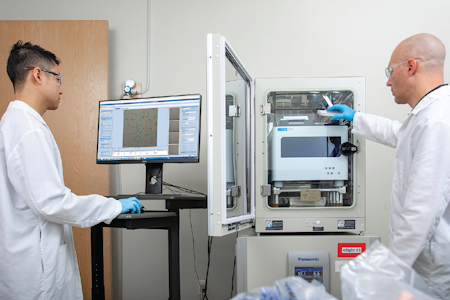
Real-Time, Multiday Cell Stress Assay: Real-time, Multi-day Cell Stress Assay: Quantifying the Unfolded Protein Response Using a Non-toxic Genetically-encoded Fluorescent Sensor, Live Cell Imaging, and Label-free Cellular Impedance
The Agilent cell analysis portfolio covers many measurement modalities, including:
• Energy metabolism
• Real-time cell viability
• Contractility
• Impedance
Why xCELLigence RTCA?
- Label-free: Impedance based biosensor technology does not require markers or dyes.
- Real-time kinetic readouts: Obtain data continuously over assays that stretch from seconds to days.
- Fast: Read a 96-well plate in just 7 seconds.
- Simultaneously monitor up to six plates, without scheduling conflicts.
- Broad applications: Suitable for many different cellular analysis applications
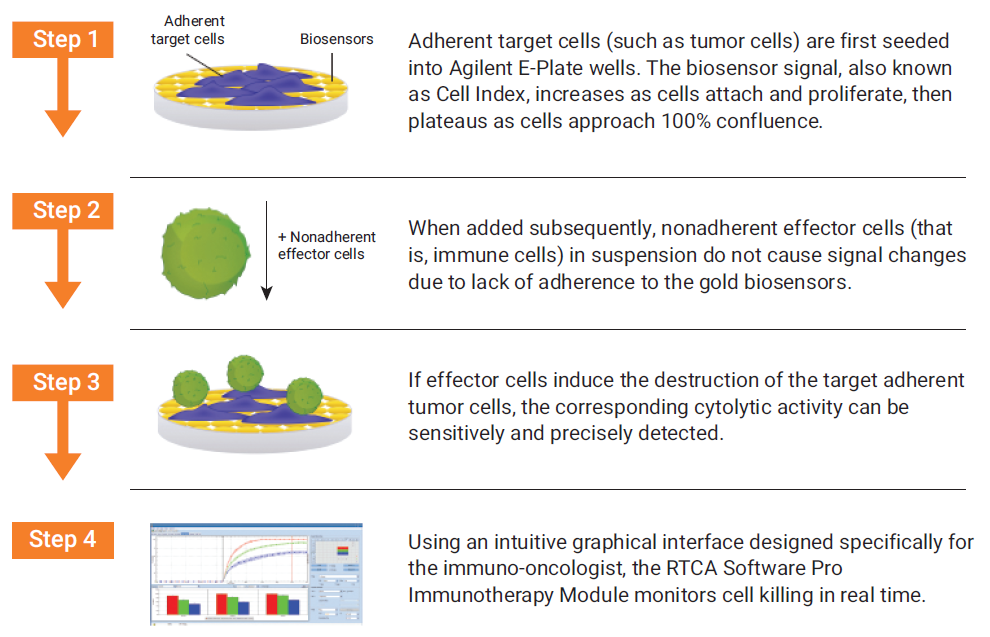
RTCA & Cancer Immunotherapy
Cancer Immunotherapy RTCA handbook
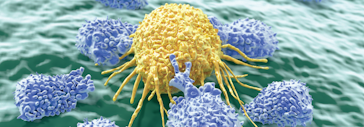
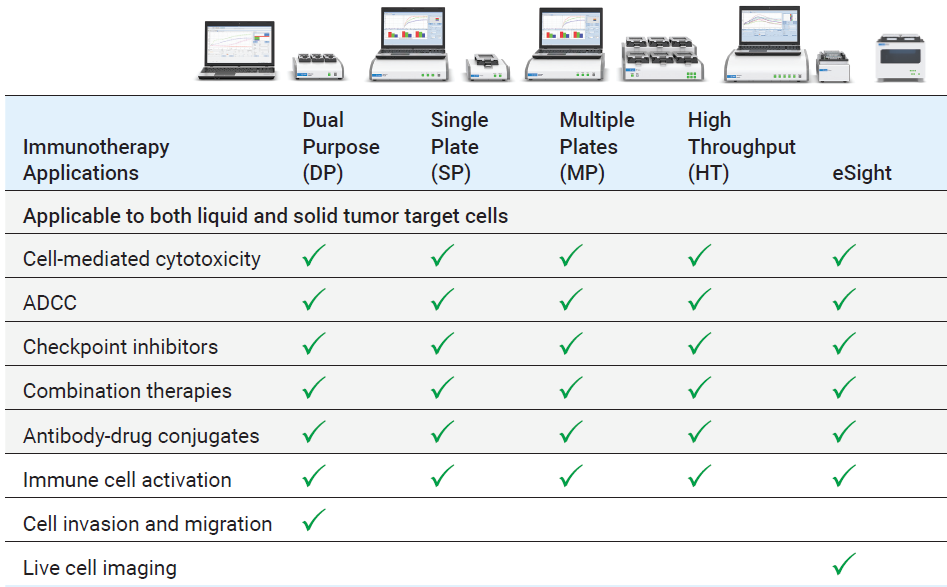
Millennium Science now distribute a new platform of Agilent products
Don't be limited by any Flow System again!
• Automation friendly
• Customisable and upgradable, 1 - 5 lasers targeting up to 30 fluorescence channels.
• Ultra-sensitive fluorescence signal detection
xCELLigence Real-Time Cell Analysis
Explore several cell analysis instruments designed to give life science researchers and drug discovery research scientists better insights into cellular function.
The Agilent cell analysis portfolio covers many measurement modalities, including:
• Energy metabolism
• Real-time cell viability
• Contractility
• Impedance
PacBio launch not one but TWO new sequencers

Millennium Science appoints top biomedical researchers to Scientific Advisory Board
Melbourne, May 2022
Millennium Science has established a Scientific Advisory Board to advise the company on new technological developments, emerging applications in research and opportunities for commercial expansion in the Life Sciences. The Board includes five expert biomedical researchers from top Australian institutions who are world leaders in functional genomics, oncology, inflammation, signalling and spatial biology. These external members will convene bi-annually with the Senior Management of Millennium Science and a recently appointed Business Development Manager, Dr Steven Hussey, formerly a Senior Lecturer in plant functional genomics at the University of Pretoria, South Africa. This initiative will ensure that Millennium Science remains highly competitive and remain the premier leader in meeting the needs of life sciences researchers.
We are proud to welcome Dr Andrew Ellison, A/Prof. Kathy Fuller, A/Prof. Luciano Martelotto, Prof. Marcel Nold and A/Prof. Kaylene Simpson to the Millennium Science Scientific Advisory Board.
Meet some of our board members
Dr Andrew Ellisdon • Head: Structural Biology of Signalling and Cancer Laboratory • Victorian Cancer Association Fellow • Monash Biomedicine Discovery Institute, Melbourne
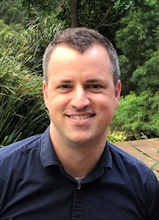 Dr Ellisdon obtained his PhD in 2007 at Monash University before training in structural biology as a Marie-Curie and EMBO Fellow at the MRC Laboratory of Molecular Biology (LMB) in Cambridge, UK. His team has a particular research focus on capturing an atomic resolution view of "signalling in action" by observing protein complexes formed by critical tumour-suppressor proteins and oncogenes. This resolution is enabled by combining recent advances in single-particle cryo-electron microscopy with crystallography and classical biochemistry. His team have a significant focus on linking these structural findings with protein engineering to drive research commercialisation and therapeutic development
Dr Ellisdon obtained his PhD in 2007 at Monash University before training in structural biology as a Marie-Curie and EMBO Fellow at the MRC Laboratory of Molecular Biology (LMB) in Cambridge, UK. His team has a particular research focus on capturing an atomic resolution view of "signalling in action" by observing protein complexes formed by critical tumour-suppressor proteins and oncogenes. This resolution is enabled by combining recent advances in single-particle cryo-electron microscopy with crystallography and classical biochemistry. His team have a significant focus on linking these structural findings with protein engineering to drive research commercialisation and therapeutic development
Andrew's group employs a range of structural biology techniques including protein crystallography, single-particle cryo-EM, cross-linking and mass spectrometry, H/D exchange mass-spectrometry and Nuclear Magnetic Resonance (NMR) analysis. Expression systems available within the laboratory include yeast, bacterial, insect, and mammalian cells allowing his group to purify even the most intricate multi-component protein complexes.
A/Prof. Kathy Fuller • Head: Translational Cancer Pathology Laboratory (TCPL) • Associate Professor of Translational Oncology • School of Biomedical Sciences, University of Western Australia
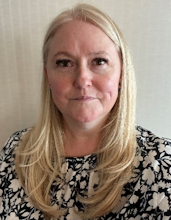 Associate Professor Kathy Fuller Heads the Translational Cancer Pathology Laboratory at the University of Western Australia. Her research is focused on the development of innovative 'blood biopsy' and imaging cytometry methods to improve diagnosis and prognosis for paediatric and adult blood cancers such as leukaemia, multiple myeloma and myeloproliferative neoplasms. Kathy is an inventor of "immuno-flowFISH", a patented world-first automated flow cytometry method that can detect chromosome signals inside cells identified by their immunophenotype. Her development of this patented method was awarded the Australian Museum ANSTO 2018 Eureka Prize for Innovative Use of Technology, resulting in industry collaborations within Australia, Japan and the USA. She is also a co-inventor of PlateletSeq, a high throughput assay to monitor gene signatures associated with myelofibrosis (bone marrow failure).
Associate Professor Kathy Fuller Heads the Translational Cancer Pathology Laboratory at the University of Western Australia. Her research is focused on the development of innovative 'blood biopsy' and imaging cytometry methods to improve diagnosis and prognosis for paediatric and adult blood cancers such as leukaemia, multiple myeloma and myeloproliferative neoplasms. Kathy is an inventor of "immuno-flowFISH", a patented world-first automated flow cytometry method that can detect chromosome signals inside cells identified by their immunophenotype. Her development of this patented method was awarded the Australian Museum ANSTO 2018 Eureka Prize for Innovative Use of Technology, resulting in industry collaborations within Australia, Japan and the USA. She is also a co-inventor of PlateletSeq, a high throughput assay to monitor gene signatures associated with myelofibrosis (bone marrow failure).
Kathy has extensive experience in protocol development and implementation of cutting-edge technology across a wide range of research areas including marine, plant and mammalian biology. Her research includes development of in vivo models of thrombogenesis using fluorescence microscopy, development of an accurate method for enumeration of neurons in shark brains as a measure of cognitive ability, development of viability assays to monitor hive health of managed honey bee populations, and development of a high throughout plant ploidy screening protocol for plant breeding.
A/Prof. Luciano Martelotto • Head: Single cell and Spatial-omics Development lab • Adelaide Centre for Epigenetics (ACE) • South Australia ImmunoGENomics Cancer Institute (SAIGENCI)
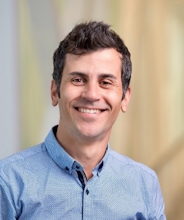
Associate Professor Luciano Martelotto (B. Biotech, Ph.D.) has been recently appointed Head of the Single cell and Spatial-omics Development lab at the Adelaide Centre for Epigenetics (ACE), South Australia ImmunoGENomics Cancer Institute (SAIGENCI). Prior to joining ACE/SAIGENCI, he was the Scientific Director of the Single Cell Laboratory at Harvard Medical School (HMS), Department of Systems Biology, Harvard University (USA). He is also the Chief Technology Officer and member of the Advisory Board of OmniScope, and Technology Advisor for Paragon Genomics (USA) and Honeycomb Bio (USA) and other biotech companies.
Luciano has a robust interdisciplinary scientific background, specialising in molecular biology and biochemistry with a strong background in technology and engineering. His diverse scientific background stems from working in a wide range of fields encompassing plant genetics, microbiology, cancer biology and genomics, and has shaped his capacity to learn, create, develop, and apply technologies across multiple disciplines. He is a world leader in development and exploitation of advanced -omics technologies including single cell and spatial proteomics analyses. The Martelotto laboratory is constantly evolving and developing technologies for the wider scientific community. The team will have full access to these brand-new technologies and know-how, and Martelotto and his lab provides technical and intellectual support during all stages of experimentation, including (but not limited to) planning, design, execution, and interpretation.
Prof. Marcel Nold • Head: Inflammation in Neonatal Diseases Research Group • Department of Paediatrics, Monash University • Consultant Neonatologist, Monash Children's Hospital • The Hudson Institute of Medical Research, Melbourne

Professor Nold is a clinician-scientist, pediatrician and neonatologist who studied Medicine at the JW Goethe-University at Frankfurt am Main, Germany, including final year rotations in Zürich (Switzerland), Montréal (Canada) and Cape Town (South Africa). His work, carried out in Germany, the USA and for the last ~12 years in Australia, is focused on interventional immunology and anti-inflammatory cytokines, and has attracted the interest of influential journals and pharmaceutical companies. He is passionate about his research making a meaningful difference to his patients and their families. Therefore, aiming to establish much-needed new therapies, Marcel's research employs bedside-to-bench-and-back approaches to explore the molecular mechanisms underpinning severe illnesses that affect infants and children, such as neonatal chronic lung disease, pulmonary hypertension, necrotising enterocolitis, and intracranial/intraventricular hemorrhage. A clinical trial that he and his team have recently commenced represents a highlight of this work, introducing the first pathophysiology-directed anti-inflammatory therapy to address a major unmet need in preterm infants.
In addition to early life-diseases, Marcel's work in translational molecular medicine aspires to develop and advance novel cytokine-based therapeutics towards clinical application, thus bringing urgently needed relief to patients with autoinflammatory and autoimmune illnesses such as systemic lupus erythematosus as well as viral illnesses such as influenza and Covid-19.
A/Prof. Kaylene Simpson • Head: Victorian Centre for Functional Genomics (VCFG), Peter MacCallum Cancer Centre, Melbourne • Department of Biochemistry and Pharmacology, University of Melbourne
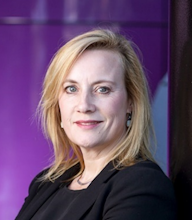
Associate Professor Kaylene Simpson Heads the Victorian Centre for Functional Genomics at Peter MacCallum Cancer Centre in Melbourne Australia. The VCFG enables researchers to perform unbiased target discovery using high throughput approaches including CRISPR, RNAi and compound screening in both 2D and 3D, underpinned by sophisticated cell phenotyping using high content imaging. Kaylene leads a highly experienced team who actively engage with researchers to help drive their research projects to fruition.
Kaylene is a molecular cell biologist who specialized in breast cancer invasion and metastasis while a postdoctoral fellow at Harvard Medical School. She has a wealth of experience in assay development, data interpretation and analysis and overall guidance in the area of functional genomics and contributes intellectually to all projects and technology initiatives within the institute. Kaylene has initiated and coordinated an annual national conference on Functional High Throughput Technologies since 2010. She is a founding member and past President of the Society of Biomolecular Imaging and Informatics, www.sbi2.org. She was an Editor for Assay, Drug Development Technologies, then Senior Editor for Scientific DATA and is currently Associate Editor for Cancer Research Communications.
Tech tips – your guide to Time-Resolved Fluorescence
3-part video series on TRF assays - what they are, and when you should use them.
- Part 1: TRF Assay Technology Basics
- Part 2: Heterogeneous TRF Assays
- Part 3: Homogeneous TRF Assays
TRF application notes from Agilent BioTek:
- HTRF application guide
- DELFIA Assay in CD16.NK-92 cells
-
FRET-based HTS Assay to Monitor Inhibition of G0/ G1 Cell Phase Transition
5 Tips to get the most out of your plate washer
